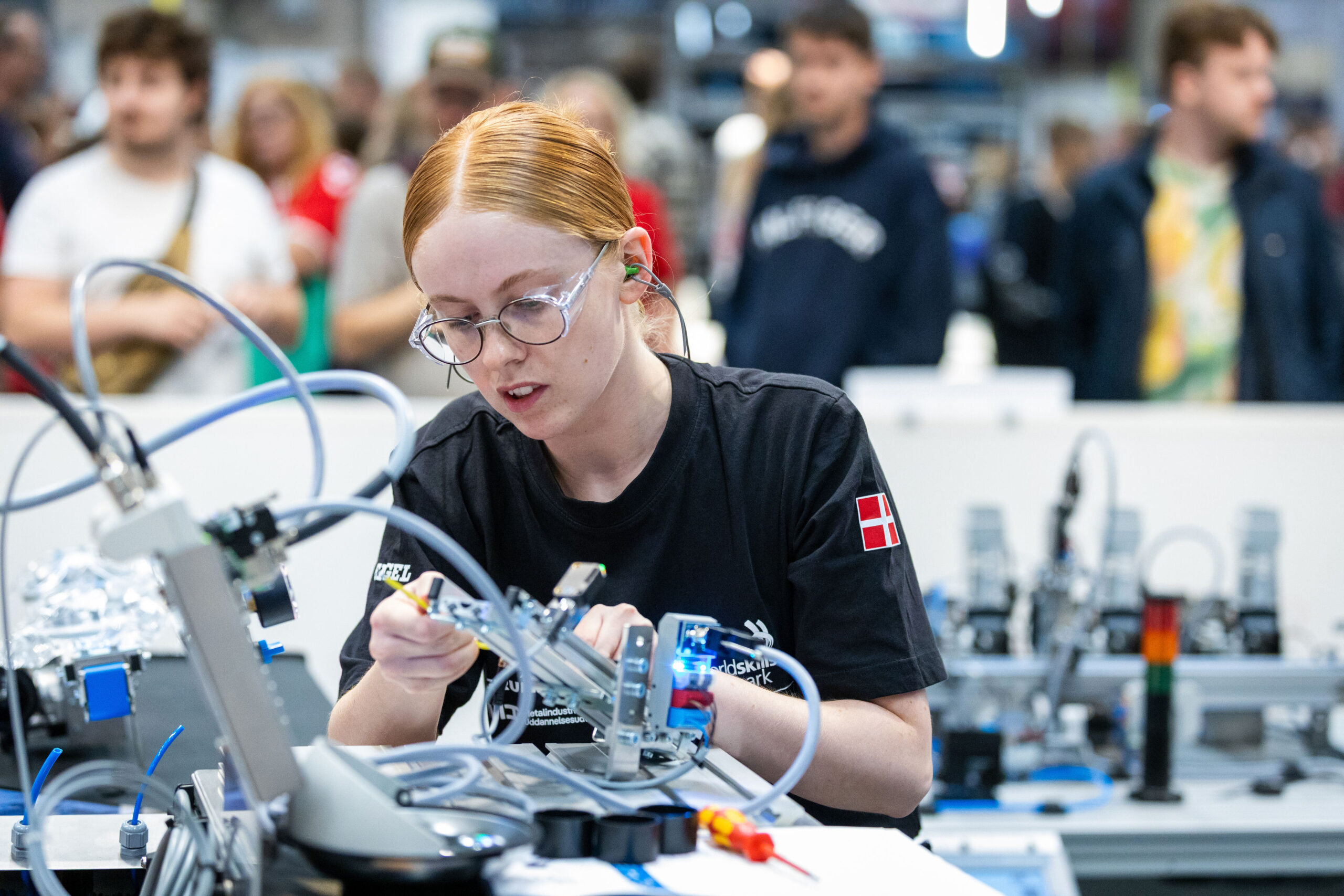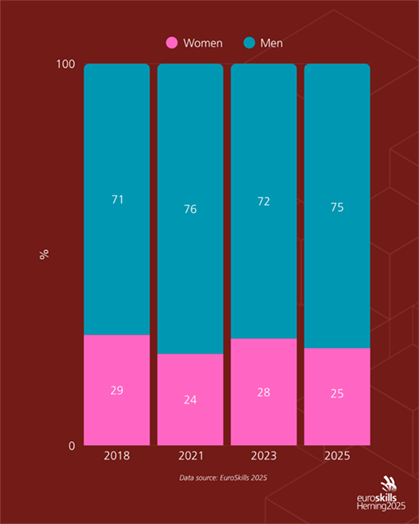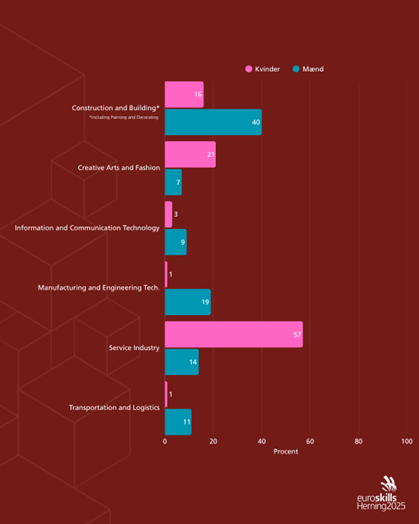
Three out of four competitors at the European championships for skilled professionals, EuroSkills, are usually men. But when EuroSkills Herning 2025 took place in September 2025, it was with a clear ambition to change this gender pattern. Targeted data collection, collaborations with civil organisations and strong role models are intended to inspire more young women to aim for gold in the future.
The best bricklayer could be called Sofie. The most skilled agricultural machinery technician could be named Ann, and the most qualified health and social care assistant might well be named Tim. EuroSkills Herning 2025 helped highlight this – because there is a need to change the gender balance in vocational education and on the podiums at both national, European and world skills championships. So says Henrik Kjeldsen, CEO of EuroSkills 2025.
“There are incredibly talented women in many trades that are typically perceived as male domains – just as there are deeply skilled and committed men in professions traditionally dominated by women. The role models are already out there, and at EuroSkills 2025 in Herning we made a significant effort to make them visible,” he says.
25 per cent women – 27 per cent medals
36 of the 133 gold, silver and bronze medals awarded at EuroSkills Herning 2025 across 38 competition skills were won by women. In other words, the female competitors claimed 27 per cent of all medals.
“There is much more to EuroSkills than medals. But it is interesting to note that women took home 27 per cent of the medals in 2025, even though they only represented 25 per cent of the participants. And we saw female medal winners in skills such as Automobile Technology and CNC Milling, and male competitors on the podium in skills such as Health and Social Care and Hairdressing. That shows that anyone – regardless of gender – can possess world-class skills if they are passionate about their trade,” says Henrik Kjeldsen.
The work, however, does not stop here. EuroSkills 2025 has collected and analysed a wide range of data on gender patterns from the four most recent competitions.
“We have done this to ensure an accurate and nuanced picture of any potential gender inequalities within the different skills. This is crucial if we are to create lasting change,” explains Henrik Kjeldsen.
Still a majority of male competitors
The collected data shows that at EuroSkills in 2018, 2021, 2023 and 2025 there was a significant predominance of male competitors, with women making up only around one quarter of the participants. In addition, around 80 per cent of the female competitors participated in creative or service-related skills, while the men primarily dominated construction, engineering, transport and logistics skills.
This pattern reflects the enrolment trends in Danish vocational education. Figures from the Ministry of Children and Education show that for many years – including in 2025 – around 11 per cent of girls enrol in a vocational programme straight after lower secondary school, compared with around 28 per cent of boys.
“But we hope that the data collection and analysis carried out by EuroSkills 2025 – together with the role models we saw on the podiums – can help accelerate change. We need to move away from automatically associating a particular profession with a particular gender and instead see that all vocational education pathways are open to everyone. We need more skilled workers, and we need the very best and most dedicated ones. That requires both young men and women to recognise that there are far more opportunities than limitations in choosing a vocational route,” says Henrik Kjeldsen.
Made possible by Villum Foundation
A grant from the Villum Foundation made it possible for EuroSkills 2025 to create the first consolidated data set documenting gender distribution among competitors. The aim is to inspire other countries to collect and analyse equivalent data.
“In this way, countries will be able to follow national developments, identify trends, and initiate targeted actions where needed,” concludes Henrik Kjeldsen.
Data Basis
EuroSkills has been held every second year since 2008.
With funding from the Villund Foundation, EuroSkills 2025 has collected data on competitors from the past four events to map trends and document developments in gender distribution across the different skill sectors.
The data analyses have been carried out by organising the results lists from:
-
EuroSkills 2018 in Budapest, Hungary, where 403 competitors took part
-
EuroSkills 2021 in Graz, Austria, where 315 competitors took part
-
EuroSkills 2023 in Gdansk, Poland, where 516 competitors took part
-
EuroSkills 2025 in Herning, Denmark, where 584 competitors took part
A count of the medals awarded at EuroSkills 2025 showed that 36 out of the total 133* gold, silver and bronze medals awarded across the 38 competition skills were won by women. In other words, the female competitors claimed 27 per cent of the medals.
*In seven skills the competition took place in teams of two, therefore a total of six medals were awarded. In one skill only a gold medal was awarded, with no silver or bronze.
Overview of the percentage gender distribution at EuroSkills – based on registered competition participants in 2018, 2021, 2023 and 2025:

Overview of the percentage gender distribution across the different sectors at EuroSkills – based on registered competition participants in 2018, 2021 and 2023:
